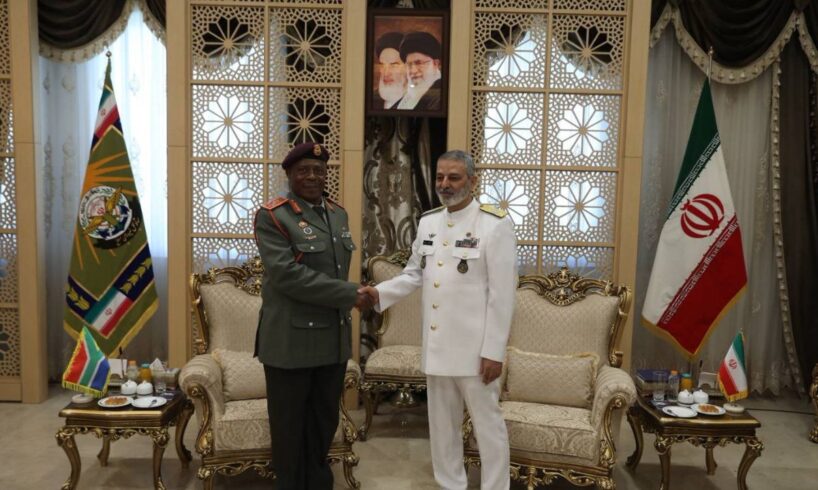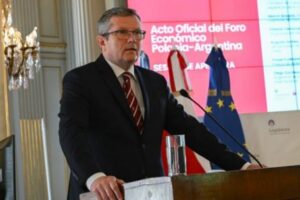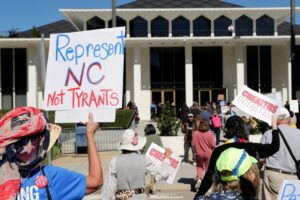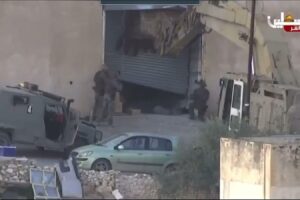
(Analysis) South Africa’s deepening alliance with Iran represents a bold defiance of Western interests, evolving from historical gratitude into a high-stakes gamble that could isolate the nation economically and politically.
What began as a post-apartheid gesture of solidarity under Nelson Mandela has morphed into a partnership that challenges U.S. dominance, fuels regional conflicts, and invites punishing sanctions.
This embrace not only undermines South Africa’s ties with key Western allies but also risks dragging the country into Iran’s orbit of anti-Western resistance, with severe consequences for its economy, security, and global standing.
The roots of this controversial bond trace back to the anti-apartheid struggle. Before Iran’s 1979 Islamic Revolution, the Shah’s regime supplied nearly 90% of oil to the apartheid government, helping it bypass international sanctions.
However, the revolutionary government in Tehran severed those links, imposing its own sanctions on South Africa and providing crucial support to liberation movements.
South Africa’s Iran Gamble: A Risky Alliance Threatening U.S. Ties and Global Stability”
Iran offered diplomatic backing, arms, training, and safe havens to groups like the African National Congress (ANC) and the Pan Africanist Congress (PAC).
When the ANC came to power in 1994, Mandela swiftly restored diplomatic relations, inviting Iranian President Akbar Hashemi Rafsanjani as one of the first foreign leaders to visit.
At a 1996 press conference in Pretoria, Rafsanjani criticized U.S. actions in Iraq, echoing Mandela’s view that moral authority demanded loyalty to those who aided South Africa in its “darkest hour.”
In 1998, Mandela defended ties with Iran, Cuba, and Libya alongside U.S. President Bill Clinton, refusing to abandon allies from the struggle.
Expansion into Economic and Political Ties
Over the past three decades, this relationship has expanded into a multifaceted alliance built on shared narratives of revolutionary struggle against colonialism and imperialism.
Both nations position themselves as champions of the Global South, opposing Western hegemony. Economically, bilateral trade hovered around $2 billion annually before recent escalations.
An official shot of President Jacob Zuma with Iran’s President Hassan Rouhani during their 2016 meeting
South African giants like MTN held a 49% stake in Iran’s Irancell telecommunications company, while Sasol partnered in the Arya Sasol Polymer Company for petrochemicals.
Politically, South Africa has consistently shielded Iran from international pressure, voting against or abstaining on UN and IAEA resolutions condemning Iran’s nuclear program, which Tehran insists is for peaceful purposes but the West suspects harbors weapons ambitions.
South Africa advocates for Iran’s right to nuclear technology, drawing parallels to its own past disarmament. The 2023 BRICS summit in Johannesburg saw South Africa champion Iran’s membership in the bloc, alongside Egypt and the UAE, further solidifying an anti-Western economic front.
Recent Military and Strategic Cooperation
Military and strategic cooperation adds fuel to the fire. In August 2025, South African Defense Force Chief Rudzani Maphwanya visited Tehran, pledging enhanced collaboration.
He declared common goals in supporting “oppressed and defenseless people” worldwide, including opposition to Israel’s operations in Gaza.
South Africa’s Iran Gamble: A Risky Alliance Threatening U.S. Ties and Global Stability
Iranian state media, such as Press TV and Tehran Times, amplified his statements as a stand against “global arrogance”—code for U.S. influence.
Though South African President Cyril Ramaphosa and International Relations Minister Ronald Lamola later disavowed Maphwanya’s authority to set foreign policy, Defense Minister Angie Motshekga confirmed she approved the trip.
This incident unfolded as South Africa lobbied the U.S. to reduce 30% tariffs on its exports, imposed amid disputes over race-based policies and foreign alignments.
Accusations of Covert Support and Party Ties
Accusations swirl that South Africa covertly backs Iran-aligned militants like Hamas and Hezbollah, denied by Pretoria but stoked by events like former Minister Naledi Pandor’s call with Hamas leader Ismail Haniyeh days after the October 7, 2023, attacks—ostensibly for Gaza aid.
ANC Deputy Secretary General Nomvula Mokonyane’s March 2025 meeting with Iran’s ambassador, documented on social media, highlights the ruling party’s enduring affinity, amid unsubstantiated claims of Iranian funding to the ANC.
The Western Perspective: A Clear Betrayal
From a Western perspective, this alliance amounts to betrayal. Iran is designated by the U.S. as a state sponsor of terrorism, accused of arming proxies that attack American forces and allies.
In Iraq and Afghanistan, Iran-backed militias have killed or injured U.S. personnel, leading to lawsuits against MTN under the U.S. Anti-Terrorism Act for allegedly supporting such groups via Irancell during Ramaphosa’s tenure as MTN chairman from 2002 to 2013.
South African Army Chief Rudzani Maphwanya at Air Force Base Waterkloof, ahead of the Iran visit
A U.S. Department of Justice grand jury is probing these links, while Ramaphosa ally Mcebisi Jonas, MTN’s current chairman, was denied a U.S. visa, derailing his role as special envoy after South Africa’s ambassador was expelled from Washington.
South Africa’s leadership in the International Court of Justice case accusing Israel of genocide in Gaza is seen by critics as echoing Iranian rhetoric, further straining ties.
This betrayal extends beyond the U.S. to the broader West. South Africa’s hosting of Russian warships, expanding Chinese influence, and now tighter Iranian ties paint it as part of an emerging axis challenging Western order.
Think tanks warn that this shift erodes investor confidence, deters foreign direct investment, and aligns South Africa with volatile partners offering ideological solidarity but minimal economic uplift—Iran’s contributions pale compared to Western trade volumes.
The Looming Sanctions Storm and Broader Implications
The looming sanctions storm is already gathering force. U.S. officials are investigating South Africa’s Iran policy, demanding clarity on Maphwanya’s visit and conflicting ministerial statements.
A call between South African deputy ministers and U.S. Deputy Secretary of State Christopher Landau in August 2025 reportedly addressed these concerns.
MoU Signing: Iran–South Africa Defense Agreement (2016)
Broader repercussions include slashed U.S. aid—billions in funding for HIV programs, energy transitions, and infrastructure are at risk, with Washington arguing that if South Africa can fund global legal battles, it can self-finance domestic needs.
The 30% tariffs threaten 100,000 jobs and disrupt a $20 billion annual trade relationship. Potential Magnitsky Act sanctions could target individual leaders for associating with “rogue regimes.”
Experts like Thembisa Fakude from Africa-Asia Dialogues highlight scrutiny over how South African firms repatriate profits from Iran despite Western sanctions, questioning compliance with global financial rules.
Why does this matter, and why should you know about it? In simple terms, foreign policy choices like these aren’t just diplomatic games—they hit people’s pockets and safety.
For ordinary South Africans, the risky embrace of Iran could mean skyrocketing unemployment from lost exports, higher prices due to tariffs, and cutbacks in vital health and education aid.
It risks turning a nation once hailed for its democratic miracle into an international pariah, isolated from the global economy that drives growth.
Geopolitically, it escalates tensions in an already unstable world: by bolstering Iran, South Africa indirectly supports conflicts in the Middle East, potentially drawing in more violence and instability that affects global energy prices and migration.
Knowing this helps understand how historical alliances can blind leaders to present dangers, forcing citizens to pay the price.
In a divided world, picking sides with anti-Western powers like Iran isn’t neutral—it’s a bet against prosperity, and the storm of sanctions could leave South Africa battered and alone.





